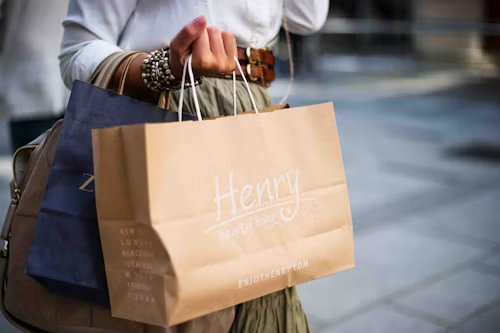If you think you’re on time for holiday shopping, you might actually be behind. Retailers are kicking off their holiday preparations earlier than ever, with Halloween merchandise appearing as early as August and Christmas and Hanukkah decorations on shelves by September or October.
For consumers who delay their holiday purchases, there’s a risk that stores will have moved on to the next event, limiting available options. This accelerated timeline can create added stress for shoppers, according to a psychology expert speaking with USA TODAY.
The Shift in Holiday Marketing Trends
In recent years, holiday marketing has expanded both online and in physical stores. While this trend applies to holidays throughout the year, it is especially pronounced during the high-volume holiday season from Halloween to New Year’s.
Prior to the pandemic, holiday merchandising typically began after Halloween. Sky Canaves, a principal analyst at eMarketer, notes that the pandemic disrupted supply chains, leading to an earlier onset of holiday sales.
Several factors are driving retailers to stock their shelves sooner. According to Neil Saunders, a retail analyst at GlobalData, consumers are now more inclined to make early purchases, and increased competition, particularly from Amazon’s promotional events in October, has shifted the holiday shopping landscape.
The fall and winter holiday season is crucial for retailers, who often generate a significant portion of their sales during the final quarter of the year. Online holiday sales are expected to grow at their fastest rate since 2021, according to eMarketer.
Despite this growth, many consumers remain cautious with their spending, looking to stick to tighter budgets. However, they still make purchases for holiday occasions, prompting retailers to focus on generating sales even in a generally subdued market.
Canaves suggests that this early marketing cycle may represent a lasting change in how holidays are marketed and merchandised, potentially allowing consumers to spread their spending over a longer period.
The Stress of Early Holiday Marketing
While early preparations can allow shoppers to pace their purchases, they can also create stress. Kristina Durante, a psychologist at Rutgers Business School, explains that retail marketers often cultivate a sense of urgency around holiday shopping, which can lead to overspending.
This urgency, fueled by a desire to create perfect holiday experiences, can make consumers feel pressured to buy quickly, as they are uncertain about when products might sell out.
Nostalgia also plays a role in holiday shopping stress. Many people associate holidays with positive childhood memories and strive to recreate those experiences for themselves and their families, adding to the pressure to shop.
Tips for Managing Holiday Stress
Durante notes that while shopping can temporarily provide a sense of control, this feeling is fleeting. When stress goes unmanaged, it can lead to emotional dysregulation, causing people to turn to shopping in hopes of regaining control.
To mitigate stress during the holiday season, consumers can take proactive steps. Reflecting on positive aspects of their lives can help reduce spending, as can engaging in physical activities like walking or deep breathing exercises, which can help calm the mind.
By taking time to pause and reflect, shoppers can navigate the holiday season more mindfully and stick to their budgets while reducing stress.








